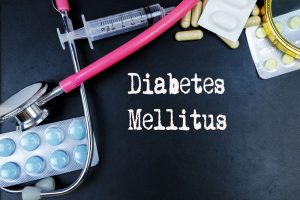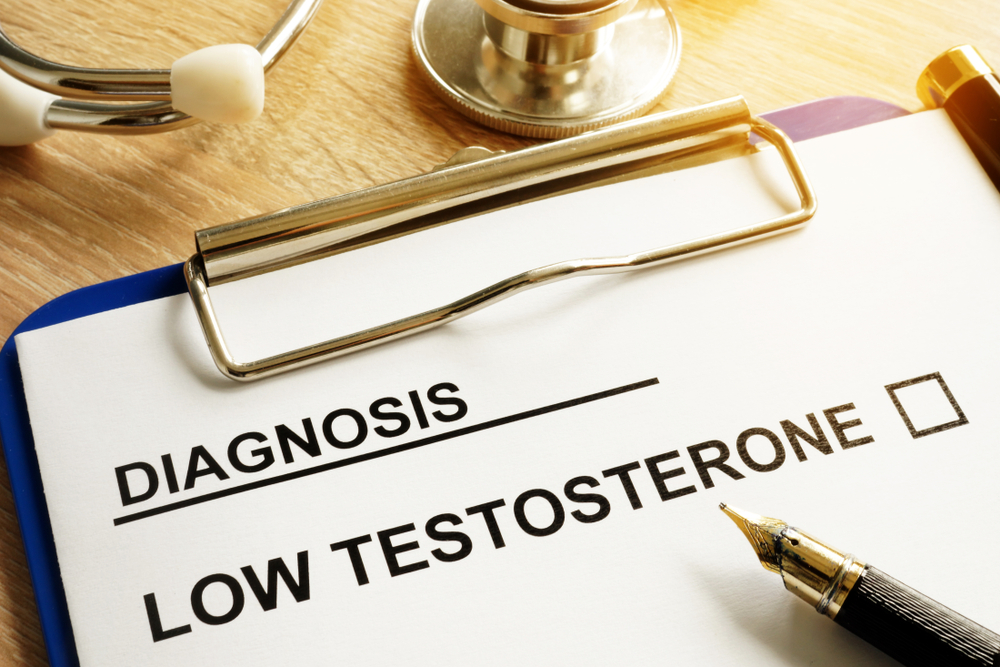Low testosterone level is a worldwide health concern among the male population. However, because of the highly complex nature of this sex hormone, it is difficult even for specialists and doctors to accurately classify which testosterone levels are actually within the ‘normal’ limits. For instance, the accepted normal range of serum testosterone levels is quite wide, at around 250-1000 ng/dL. An implication of this is that one man could have a fourth of the testosterone levels of another man, yet both of them can still fall within the normal range.
Ideally, it takes several years before you notice any changes in your energy and performance due to age-related testosterone decline. But certain health factors or circumstances can speed up this process. For example, testosterone production may be negatively affected by systemic illnesses, autoimmune diseases, and inherited disorders. Overall, the most common causes of low testosterone levels are aging, obesity, certain medications, stress, and Type 2 Diabetes Mellitus, which we will be going through one by one.
-
Aging
Increasing age is the primary cause of the decline in testosterone levels among men. The majority of men aged 50 years old and above, have been found to have below-average testosterone levels, attributable to aging. This decline occurs at an annual rate of 2%, which occurs after an individual reaches his peak testosterone level in his lifetime. Low testosterone often presents as poor libido or sex drive and easy fatigability. While these symptoms may manifest at any age, the risk typically increases with advancing age.
After reaching adulthood, the body instinctively tapers down its testosterone production because there is decreased demand for androgens to support the growth and development of your now fully mature body. This decline, unfortunately, not only impacts your growth and development, but also your muscle performance, libido, and mood.
Alarmingly, age-related testosterone decline has been found to occur at a much rapid rate in 2020, compared to that from the 1980s. A study recently conducted, showed that currently, men in their 4th decade of life have 20% lower testosterone levels compared to men of the same age back in the 1980s. At this time, men over 50 years old have 50% lower testosterone levels compared to their average testosterone levels when they were in their 20s. This dismal trend is potentially a result of a sedentary lifestyle and unhealthy choices in a vast majority of our population. Regrettably, we can expect an even sharper decline in testosterone levels shortly.
-
Obesity
 As we all know, obesity plays an important role in many aspects of our health. But what most people don’t know is that it can also facilitate the downward spiral of your testosterone levels. By being overweight or obese, insulin resistance can result which causes a reduction in sex hormone-binding globulin (SHBG), which is a protein that binds testosterone and carries it across the bloodstream. Hence, a decrease in SHBG reduces the total testosterone levels circulating in the body.
As we all know, obesity plays an important role in many aspects of our health. But what most people don’t know is that it can also facilitate the downward spiral of your testosterone levels. By being overweight or obese, insulin resistance can result which causes a reduction in sex hormone-binding globulin (SHBG), which is a protein that binds testosterone and carries it across the bloodstream. Hence, a decrease in SHBG reduces the total testosterone levels circulating in the body.
Aside from obesity’s effect on SHBG, it also increases aromatase activity which is an enzyme responsible for converting testosterone to estrogen. As a result, testosterone becomes depleted at a much faster rate. Consequently, levels of estrogen rise, which further encourages fat deposit storage (and thus again contributing to the cycle of obesity and low testosterone feedback loop). Estrogen also possesses anti-androgen properties which can drive the testosterone levels in the body much lower.
-
Certain Drug Prescriptions
Some types of medications can deplete your testosterone levels at a faster rate. An example of this is opiate-based painkillers, owing to the capability of opiates to suppress gonadal hormone production. This then results to lower testosterone production. Worse, long-term opiate use or abuse can eventually lead to hypogonadism, which may then lead to severe testosterone decline (<250 ng/dL). Some antidepressants and chemotherapeutic drugs are also known to have similar detrimental effects to opiates.
Hence, it is always crucial to ask your doctor if the drug they prescribe harm other areas of your health. Keep open communication with your physician regarding the drugs you will be taking, and if these prescriptions can negatively impact your testosterone level, you may opt to ask if there are alternatives. Remember that objectively weighing the pros and cons of taking any medication, is key to optimal health.
-
Chronic Stress
Stress is almost a given in everyone’s life nowadays. But the effects of stress go beyond its emotional and psychological aspects. It also has a complex physiologic impact on our bodies. When the body shifts into a fight-or-flight mode, it prioritizes giving its resources to our muscles to enable short bursts of energy. Moreover, cortisol, which is released in response to stress (hence the term ‘stress hormone’) has been said to hinder testosterone production as well.
Stress can impact mental health too and lead to the development of anxiety and depression, which can further accelerate testosterone decline. As such, we should view stress management as a priority to help prevent testosterone level decline. Seemingly simple activities such as going for a walk, participating in hobbies, and getting enough sleep can do great wonders to your health. As they often say, prevention is always better than cure.
-
Type 2 Diabetes Mellitus
 Type 2 Diabetes Mellitus, which is often a sequela of poor diet and lifestyle choices, is a disease characterized by insulin resistance which in turn renders the body unable to effectively use up the glucose from the blood. Persistently high glucose levels in the blood can then lead to a wide array of complications such as heart diseases, hypertension, nerve damage, stroke, kidney failure, poor wound healing, vision loss, and many more.
Type 2 Diabetes Mellitus, which is often a sequela of poor diet and lifestyle choices, is a disease characterized by insulin resistance which in turn renders the body unable to effectively use up the glucose from the blood. Persistently high glucose levels in the blood can then lead to a wide array of complications such as heart diseases, hypertension, nerve damage, stroke, kidney failure, poor wound healing, vision loss, and many more.
Interestingly, it has been identified that diabetic males are more likely to have lower total testosterone, in comparison to their non-diabetic cohorts. The reason for this is that diabetes can damage the pituitary gland, which is known to produce the luteinizing hormone (LH) that stimulates testosterone production. Therefore, a defective pituitary gland results in decreased total testosterone levels.
Conversely, those with low levels of testosterone are at higher risk of developing diabetes. This is attributed to the fact that testosterone aids cells in storing glucose from the blood, and thus its depletion can promote insulin resistance and can subsequently progress to diabetes.
Ensure your testosterone levels don’t drop
Male UltraCore is the leading testosterone support and male enhancement formula in the market. With over 12 natural androgenic ingredients powering its state-of-the-art Vasodilator Ingredients for Penile Expansion (VI-PEX) and Sustained Testosterone Enhancement Method (STEM) Technologies. Safeguard your testosterone levels and experience the Male UltraCore difference today. Exclusively available at www.MaleUltraCore.com.



